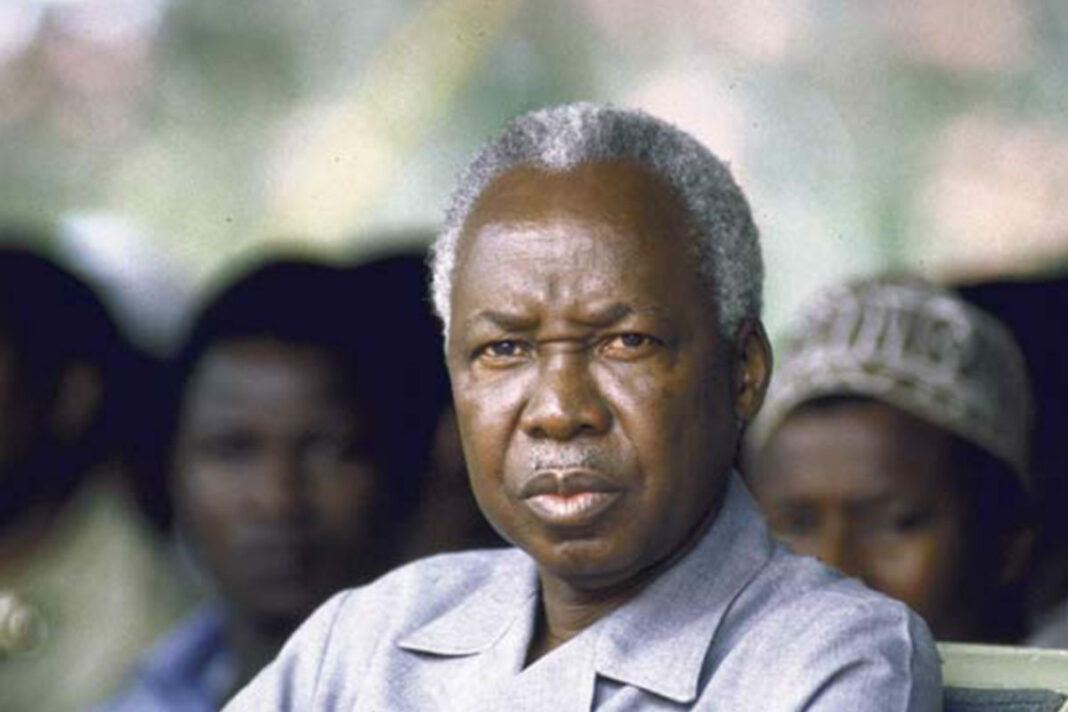
Mwalimu Julius Nyerere was born March 1922, in Butiama, Tanganyika [today in Tanzania] and died October 14, 1999, in London, England) was the first prime minister of independent Tanganyika (1961), who later became the first president of the new state of Tanzania (1964)
Nyerere was also the major force behind the Organization of African Unity (OAU; now the African Union).
Background of Julius Nyerere
Nyerere was the son of the chief of the small Zanaki ethnic group. He was educated at Tabora Secondary School and Makerere College in Kampala, Uganda. A convert to Roman Catholicism, he taught in several Roman Catholic schools before going to Edinburgh University. He was the first Tanganyikan to study at a British university. He graduated with an M.A. in history and economics in 1952 and returned to Tanganyika to teach.
Mwalimu Julius Kambarage Nyerere (1922-1999) was a significant figure in African history and the founding President of Tanzania. Here are some key points about his life and legacy:
Early Life and Education
Born: April 13, 1922, in Butiama, Tanzania (then Tanganyika).
Education: Attended Makerere University in Uganda and the University of Edinburgh in Scotland, where he became the first Tanzanian to earn a degree from a British university.
Political Career
Founding of TANU: Nyerere founded the Tanganyika African National Union (TANU) in 1954, which played a crucial role in the independence movement.
Independence Leader: Nyerere led Tanganyika to independence from British rule in 1961.
First President: Became the first Prime Minister of Tanganyika in 1961 and its first President in 1962. He remained President after the union with Zanzibar in 1964, which formed Tanzania.
Policies and Philosophy
Ujamaa: Nyerere is best known for his policy of Ujamaa (familyhood), a form of African socialism that emphasized collective farming and national self-reliance.
Education: Advocated for widespread literacy and educational reforms, earning him the title Mwalimu (teacher).
Non-Aligned Movement: Actively participated in the Non-Aligned Movement during the Cold War, advocating for African unity and independence from colonial powers.
Later Life and Legacy
Retirement: Voluntarily stepped down from the presidency in 1985, a rare move among African leaders at the time.
Pan-Africanism: Continued to be involved in Pan-Africanist and international affairs, mediating in various conflicts across the continent.
Death: Passed away on October 14, 1999, in London.
Impact
Economic Challenges: Despite his ideals, the Ujamaa policy led to significant economic difficulties, including food shortages and economic decline.
Education and Health: Nyerere’s policies significantly improved literacy and health care access in Tanzania.
Moral Leadership: Remembered for his integrity, commitment to equality, and his vision of an egalitarian society.
Quotes
On Leadership: “It can be humiliating to be an African leader in the 20th century if you are not strong enough.”
On Unity: “Without unity, there is no future for Africa.”
Further Reading
Biographies: “Nyerere: The Early Years” by William Edgett Smith and “Nyerere of Tanzania” by Godfrey Mwakikagile.
Primary Sources: Nyerere’s own writings, such as “Freedom and Unity” and “Ujamaa: Essays on Socialism.”






